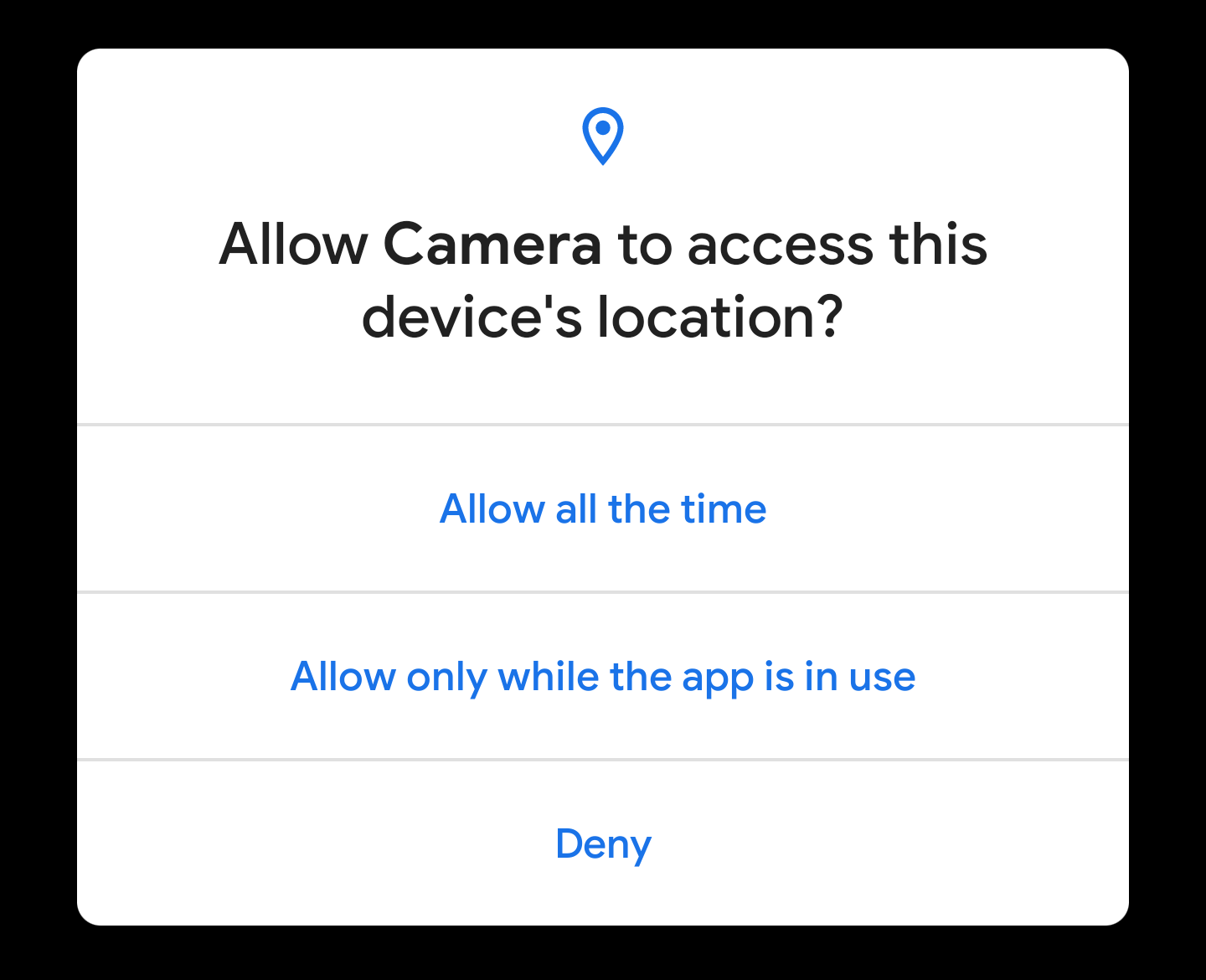Google has tightened Android security over the years, but there are still some loopholes that need closed. In Android Q, Google has addressed several nagging issues. The changes are geared toward giving users more control and transparency, and that will mean developers might have to rethink how they do things.
The most prominent privacy change is the way locations are handled. This permission now has a special place in Android Q. Whereas in the past you could just approve or deny location access to an app, Android Q adds the option of approving location access only when an app is in use (see above). Thus, no more background location access for that app. One minor change you might also notice, the permission dialog is different.
Background apps will also have to cope with a long overdue quality of life improvement. No one likes when apps unexpectedly jump into the foreground, so they won't do that in Android Q. The new OS won't allow apps to launch an Activity from the background. This could have negative impacts on some apps, but Google thinks most devs will be able to cope with high-priority alarms (e.g. for calls) that can provide a full-screen intent.
Google is an advertising company, but it makes it possible to disable targeted ads—you can reroll or deactivate your device's unique advertising ID. Some developers have gotten around that by associating users with non-resettable IDs like the MAC address or IMEI. Android Q limits app access to those values. Plus, the MAC Address is automatically randomized when you connect to a new Wi-Fi network. That setting was available in Pie but off by default.

